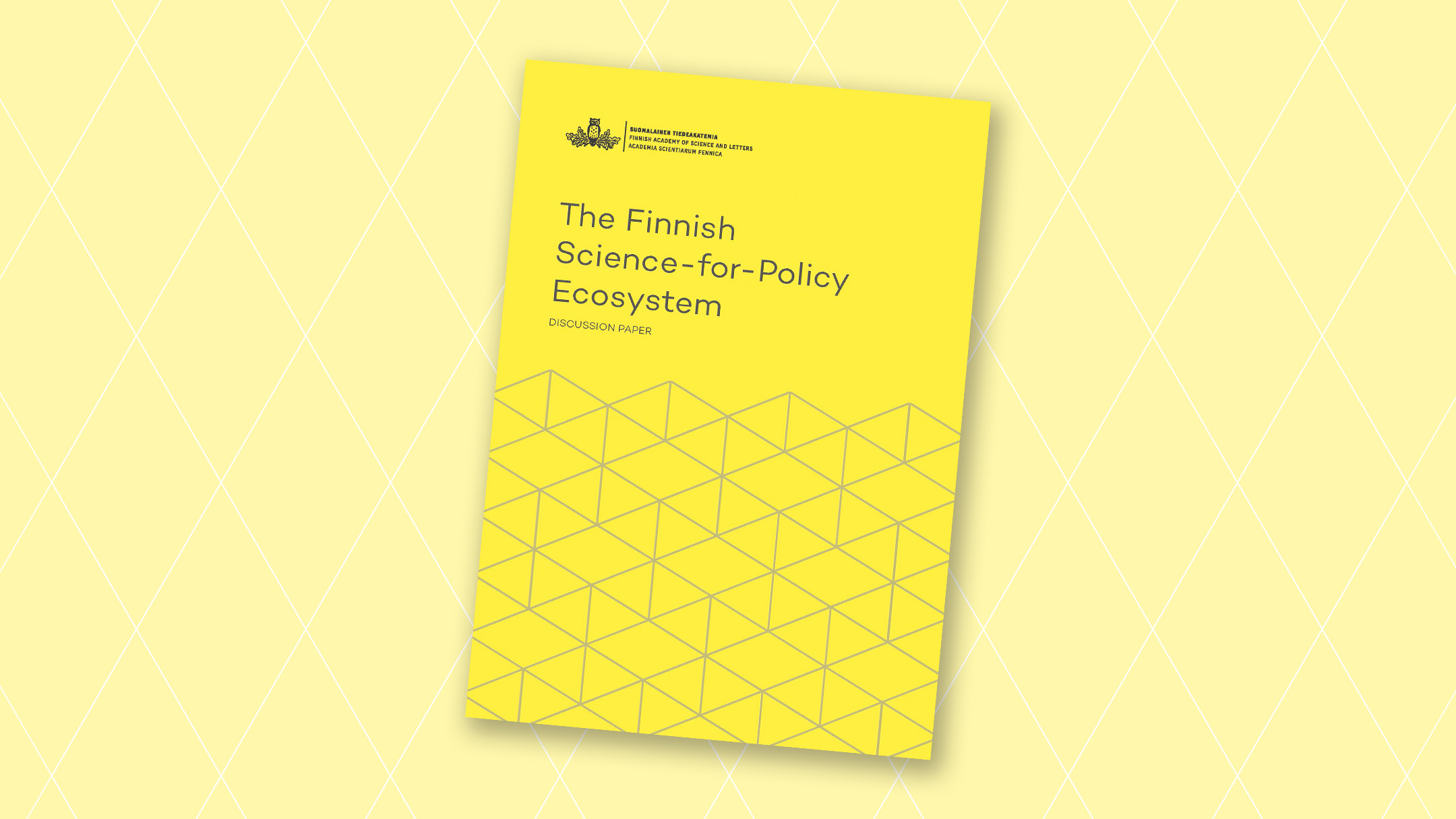New report reveals Finland’s distinctive approach to integrating scientific evidence into policymaking and calls for strategic discussions on its future.
Finland’s science-for-policy ecosystem is operating as a complex network of relationships rather than through centralised formal structures. The Finnish Academy of Science and Letters has published a discussion paper offering an in-depth analysis of how evidence is used in policymaking in Finland, as well as the different instruments involved. The work was inspired by the EU’s Joint Research Centre’s project “Strengthening and connecting ecosystems of science for policy across Europe” and similar discussion papers already made in other EU Member States including Denmark, Greece, France, Portugal, and Spain.
The Finnish science-for-policy ecosystem includes 13 universities, 22 Universities of Applied Sciences, 12 Government Research Institutes, the Research Council of Finland, Academies of Science, science panels, boundary organisations, ministries, and ad hoc working groups among others.
The report comes at a critical time when bridges between scientific knowledge and decision-making are being dismantled at an alarming rate, both in Finland and internationally. While there are national strategic discussions around research, development and innovation (RDI), it is not alone sufficient.
Researchers have only a minor role in the formal evidence-informed decision-making
According to a previous OECD evaluation, Finland has established relatively robust foundations for science-policy dialogue, and it has pioneered innovative instruments for connecting knowledge producers, users and intermediaries.
However, the new report highlights a troubling statistic: between 2015-2023, when parliamentary committees requested expert statements, only 6.3% were directed to researchers – indicating a significant gap in how scientific expertise is utilised in legislative processes.
In addition, expert consultations tend to concentrate on certain researchers and there were notable imbalances between disciplines: only 1% of the expert statements requested by parliamentary committees were for researchers in humanities.
“We need a broader conversation about evidence-informed policymaking and its current state – specifically examining to what extent decision-making is based on scientific knowledge and what kind of knowledge is being utilised”, explains Linda Lammensalo, knowledge broker and one of the authors of the paper.
Uncoordinated efforts are insufficient for complex challenges – a call for strategic discussions
Finland’s science-for-policy ecosystem functions as a network of stakeholders and it lacks some of the formal structures that exists in other countries. Science-policy practices remain mostly traditional and reactive linear model of communication instead of continuous dialogue.
The report concludes that while Finland’s science-for-policy ecosystem continues to evolve, current improvement efforts remain largely uncoordinated and insufficient in scale. It calls for collective dialogue to establish a shared vision and strategic direction for Finland’s science-for-policy ecosystem—a call that resonates increasingly strongly as the nation faces complex policy challenges requiring scientific input.
“We hope that the discussion paper serves as a foundation for enriching conversations on how the science-for-policy ecosystem in Finland is organised and how it could be developed in the future”, argues Jaakko Kuosmanen, Academy Secretary at the Finnish Academy of Science and Letters.
The report suggests three key pathways for transformation
- Leveraging knowledge brokering as a transformative force for change
Knowledge brokering – the work that builds bridges between science and knowledge users – remains underutilised, yet it could significantly reshape the science-for-policy landscape. It offers an accessible means of driving systemic change in the ecosystem by dissolving the traditional divide between knowledge producers and users.
Formally recognising and cultivating a community of brokers would develop a more integrated, effectively functioning ecosystem. Strengthening knowledge brokering capacities within organisations helps create a collaborative culture of evidence-informed policymaking.
- Transforming the Research Community’s Approach to Policy Engagement
Research community’s approach to influencing policymaking must become more proactive, collaborative, and phenomenon-based.
The current one-directional science communication practices that rely on individual researchers must evolve toward collaborative engagement that addresses policy challenges through phenomenon-based approaches rather than disseminating isolated research outputs. Knowledge brokers could facilitate this transition, redirecting pressure from individual researchers to specialists who can guide effective science-policy interactions.
- Implementing Comprehensive Reform
Large-scale structural changes in the science-for-policy ecosystem are overdue. Current challenges and future developments, such as developments in AI, require deliberate collective action and structural changes in how science-policy engagement is organised.
For this reason, a discussion that drives change is needed about the future of the science-for-policy ecosystem and the desired direction of development.
Read the full report: The Finnish Science-for-Policy Ecosystem
Additional information:
Linda Lammensalo
Knowledge broker
linda.lammensalo@acadsci.fi
+358 50 308 7726
Jaakko Kuosmanen
Academy Secretary
jaakko.kuosmanen@acadsci.fi
+358 400 601 716

